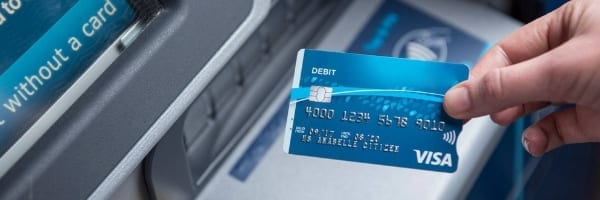Whenever you travel abroad, common questions arise: what’s the most convenient way to transfer money? How do you open a bank account in New Zealand? Can you still use your foreign banks’ accounts and cards while in another country? Let’s take a closer look at all of this.
Opening a bank account in New Zealand
Content:
- New Zealand banks
- Opening an account remotely
- Transfer money to New Zealand
- Opening an account at a bank’s office
- Proof of address
- Using of foreign banks’ cards
One of the first things people notice when arriving in New Zealand is how widespread electronic payments are. New Zealanders are big fans of debit and credit cards — about 75% of all transactions are cashless, and very few people use cash. Bank transfers remain the most cost-effective way to bring money into New Zealand, even considering transfer and intermediary bank fees.

New Zealand banks
There are 26 registered banks in New Zealand, and the largest ones are owned by Australian parent companies: ANZ, ASB, BNZ, Westpac.
These four Australian-owned banks control 87% of New Zealand’s banking sector assets. In contrast, five New Zealand-owned banks — the largest being Kiwibank — account for only 8% of the assets.
You can open a New Zealand bank account remotely, before you arrive in the country. This will allow you to transfer funds in advance. However, you will only be able to fully use the account (make payments, withdraw money, etc.) after activating it in person at a New Zealand bank branch.
The following major banks offer remote account opening services: : Kiwi Bank, ANZ, ASB, BNZ, Westpac.
Most banks also offer special services for international students, including no monthly account fees, zero transaction fees, and nice perks like free custom card designs.

Remote bank account opening
There are two main reasons to open a New Zealand bank account remotely:
- You plan to transfer more than NZ$10,000 per person.
New Zealand has a limit of NZ$10,000 in cash per person when crossing the border. If you want to bring in a larger amount, it’s better to open a New Zealand account and transfer your funds before you depart, as soon as your visa is granted. - Your visa is valid for less than 6 months.
In this case, banks will only agree to open your account through an online application before your arrival.
To apply for a bank account online, you will need to provide:
- A copy of your passport
- Your visa
- Proof of address (in English)
Next steps:
- Fill out the bank’s online account application form and upload the required documents.
- If approved, the bank will send you a notification of account opening in your name.
- Online applications can be found on the websites of Kiwi Bank, ANZ, ASB, BNZ, Westpac.
According to your home country’s law you may need to notify tax authorities of your country that you have opend a foreign bank account.
After you arrive in New Zealand, visit the bank in person with your passport to activate your account and gain full access, including to funds you transferred earlier.
Please note: Depending on the international political situation, some banks may suspend remote account services for certain nationalities. Based on our experience, Kiwibank is the most flexible in this regard, while BNZ is the least — it frequently denies remote account opening requests from citizens of certain countries, including those from the former CIS.
Transferring Funds to a New Zealand Bank Account
You can send money to New Zealand via bank transfer. In most cases, you’ll need to pay a transfer fee, and also consider currency conversion rates and transfer limits.
Funds usually arrive within three business days, but in our experience, private banks tend to process international transfers faster and more smoothly.
That said, at the moment, transferring money and converting it into New Zealand dollars is not the most attractive option due to the fees and source-of-funds documentation requirements.

Opening a Bank Account at a Bank Branch
If you’re already in New Zealand, opening a bank account is relatively easy — provided your visa is valid for 6 months or more.
If your visa is valid for less than 6 months, we recommend visiting ASB or Westpac, as they may consider your case individually.
Regardless of your visa status, you’ll need the following documents to open an account:
- ID — your passport
- Proof of address — a document confirming your residential address in New Zealand
- Your tax number (INN) — you don’t need to present a physical document, just provide the number
- Proof of student status — required to open a student account. This can be your student visa, an offer of place, or a student ID issued by your educational institution
- Bank statement — a recent statement from your existing bank account, in English
- RealMe account — to verify your visa status through the immigration verification system at the bank
With this set of documents, you should visit the branch of your chosen bank. We recommend choosing branches outside the city center (CBD) to avoid long queues. Alternatively, you can book an appointment online by filling out a form on the bank’s website — in this case, a bank specialist will be ready to assist you at the scheduled time.
Proof of address
When asked to provide Proof of Address, you can present any document that includes your full name and residential address.
However, the list of acceptable documents may vary depending on the institution. Below are the most common options:
- A letter from your educational institution, signed by the principal/director
- A rental agreement (not short-term)
- A letter from the homeowner where you’re staying (in free form; the owner may need to accompany you to the bank)
- Utility bills (electricity, internet, water, etc.)
- A letter mailed to you from the City Council, Transport Agency, Inland Revenue, or other official sources
- RealMe address verification
- A New Zealand driver’s license, if it includes your address
- An insurance card, if it includes your address
You will likely be asked to prove your address more than once during your stay in New Zealand, so keep any official mail addressed to you.
Using foreign banks’ cards
What if you’re coming to New Zealand for less than 3 months? In that case, remember that carrying cash and using foreign bank cards (other than Russian cards) is still allowed.
You can bring in any amount of cash up to NZ$10,000 per person without declaring it. If you’re carrying more than NZ$10,000, you must declare the funds and provide documents proving the source of income, such as a property sale, inheritance, etc.
Additionally, you can use your foreign bank cards for payments or to withdraw cash from local ATMs. Though this is not always the most cost-effective method, it works. Transaction fees vary by bank — they might charge a percentage of the withdrawn amount or a fixed fee.
You can also use your foreign card to pay for goods and services, but make sure to contact your bank before departure:
- Notify the bank about your upcoming trip so that your card doesn’t get blocked by the security department when used abroad
- Clarify the transaction fees for international use to avoid unexpected costs
- Check your withdrawal limits (per transaction or per day), and adjust them if needed based on how you plan to spend your money
We hope this information is useful and will come in handy during your time in New Zealand.



